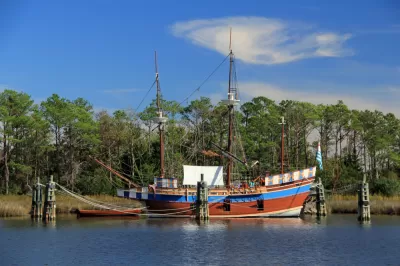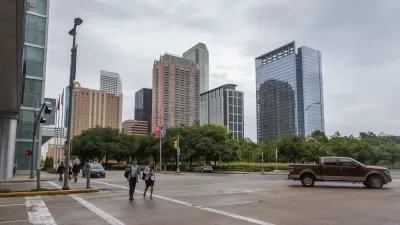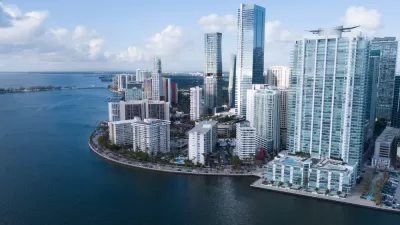A potentially radical point of view that must be considered by planners: moving the field forward will require soul searching that confronts an overcomes the disposition and exploitation that defined the past and continues to influence the future.

Annette Koh provides a treatise on "Decolonial Planning" a project that will require a "radical restructuring of finance, government, and our relationship with for-profit ventures."
Here, Koh connects the historical and the contemporary to describe the characteristics of planning as colonization and its continued influence:
In North America, European ideas about property and land rights allowed for the expulsion of indigenous peoples in the name of progress — with enclosure and privatization going hand in hand with public investment. Founding mythologies such as Thomas Jefferson’s yeoman farmer and the sturdy pioneer turning wilderness into productive farms valorized “improvement” as defined by colonial frameworks of capitalism and justified the displacement of those who had not properly utilized land by these imported standards. Fences and wheat signified “worthy” improvement, while relational knowledge of place, season, and kinship were invisible. Although disavowed today, urban renewal and the wholescale demolition of working class communities of color in the name of progress relied on the same disregard for social value. In present day discussions about the importance of activating “underutilized” public parks, planning yet again fails to see what already exists there in the rush to make spaces attractive to outside interests.
Koh lists some concepts from Hawai'i and New Zealand that could guide a reconstruction of legal and regulatory regimes, and redefine the frequently used term "highest and best use."
In fact, planners are already working on the practical project of decolonizing planning in Hawai'I, according to Koh:
I admit that I am not entirely sure how one goes about decolonizing a county planning department, but the head of Hawai‘i County’s planning department came to our Decolonizing Cities symposium in November 2018 and asked that very question. Planners at the Department of Hawaiian Homelands and in other community organizations are also figuring out how to sustain people’s connection to the ‘aina' by making operating expenses a self-generating fund that reinvests in local needs.
FULL STORY: Decolonial Planning in North America

Alabama: Trump Terminates Settlements for Black Communities Harmed By Raw Sewage
Trump deemed the landmark civil rights agreement “illegal DEI and environmental justice policy.”

Study: Maui’s Plan to Convert Vacation Rentals to Long-Term Housing Could Cause Nearly $1 Billion Economic Loss
The plan would reduce visitor accommodation by 25% resulting in 1,900 jobs lost.

Planetizen Federal Action Tracker
A weekly monitor of how Trump’s orders and actions are impacting planners and planning in America.

Waymo Gets Permission to Map SF’s Market Street
If allowed to operate on the traffic-restricted street, Waymo’s autonomous taxis would have a leg up over ride-hailing competitors — and counter the city’s efforts to grow bike and pedestrian on the thoroughfare.

Parklet Symposium Highlights the Success of Shared Spaces
Parklets got a boost during the Covid-19 pandemic, when the concept was translated to outdoor dining programs that offered restaurants a lifeline during the shutdown.

Federal Homelessness Agency Places Entire Staff on Leave
The U.S. Interagency Council on Homelessness is the only federal agency dedicated to preventing and ending homelessness.
Urban Design for Planners 1: Software Tools
This six-course series explores essential urban design concepts using open source software and equips planners with the tools they need to participate fully in the urban design process.
Planning for Universal Design
Learn the tools for implementing Universal Design in planning regulations.
Caltrans
Smith Gee Studio
Institute for Housing and Urban Development Studies (IHS)
City of Grandview
Harvard GSD Executive Education
Toledo-Lucas County Plan Commissions
Salt Lake City
NYU Wagner Graduate School of Public Service





























